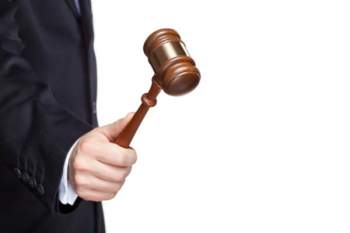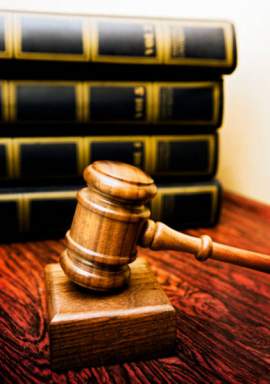
Gitlow v. New York

The Background of Gitlow v. New York (1925)
The case of Gitlow v. New York was a trial that took place in 1925 with regard to the application of the tenets and precepts expressed within the Constitution of the United States – as well as those expressed within the Amendments; this trial addressed both the Federal Government’s – as well as the individual States’ – responsibility to uphold civil liberties expressed within the Consitution. Benjamin Gitlow, who was considered to be both a Socialist – as well as a potential anarchist threat to the United States government, was charged with a violating ‘Anti-Anarchist’ legislature upheld by the State of New York; prior to his arrest, Gitlow had been charged with releasing publications presumed to be latent with Anti-American rhetoric. Subsequent to his initial conviction, Benjamin Gitlow appealed his conviction, stating that his conviction was in direct violation of both his 1st and 14th Amendment rights expressed in the Constitution; the appeal hearing became what is now considered ‘Gitlow v. New York’.
The Case Profile of Gitlow v. New York
The following is a case profile of the legal trial eponymously titled ‘Gitlow v. New York’:
Date of the Trial: November 23rd, 1923
Legal Classification: Administrative Law; this legal field associated with events and circumstances in which the Federal Government of the United States engages its citizens, including the administration of government programs, the creation of agencies, and the establishment of a legal, regulatory federal standard
Accused Criminal Activity: The following criminal activity and charges were cited by %%% against %%%%
Although Gitlow was convicted of violating applicable legislation enacted within the State of New York prohibiting expression considered to be ‘Anti American’, Gitlow appealed his conviction accusing the State of New York of violating his Constitutional rights
United States Reports Case Number: 268 U.S. 652
Date of the Delivery of the Verdict: June 8th, 1925
Legal Venue: The Supreme Court of the United States
Judicial Officer Responsible for Ruling: William H. Taft
Involved Parties: The following are the parties named with regard to their involvement in the Gitlow v. New York case:
Benjamin Gitlow – the plaintiff - was an social activist and author
The State of New York – the defendant – was cited for a violation of Gitlow’s Constitutional rights
Verdict Delivered: Benjamin Gitlow remained guilty of his crimes, but the Supreme Court mandated that individual State governments were unable to deny their residents the civil and human rights expressed within the Constitution of the United States
Associated Legislation with regard to Gitlow v. New York: The following statutory regulations were employed with regard to the Gitlow v. New York trial:
The 1st Amendment of the Constitution ensures that all citizens of the United States are afforded the freedom of speech; this statute also includes the freedom to express oneself in accordance to accepted and undertaken legislation and legality - this statute includes the freedom to join and participate in activities and engagements upon choosing to do so without threat or duress
The 14th Amendment illustrates legislation that disallows the government from infringing on the right(s) to pursue ‘Life, Liberty, and the Pursuit of Happiness’ with regard to any and all citizens of the United States of America – this statute is applicable to all measures of gender, race, religion, and age
NEXT: Gonzales v. Raich





















